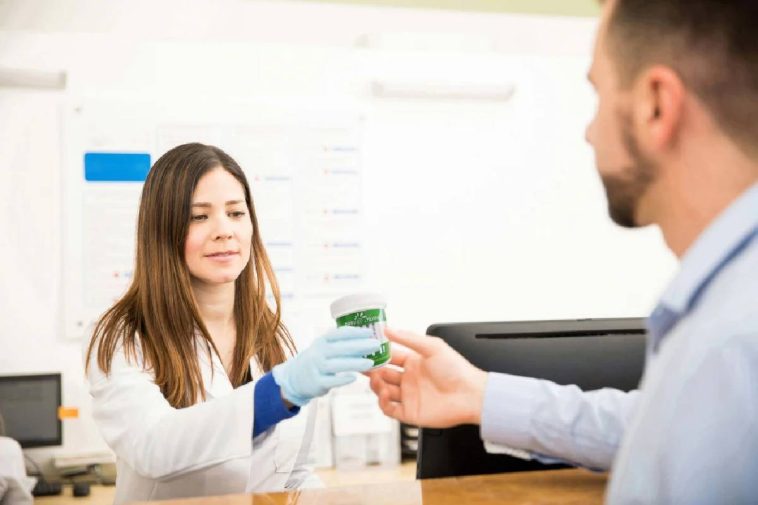In today’s fast-paced world, where privacy concerns are increasingly at the forefront of our minds, the need to protect personal information in drug testing services has never been more crucial. Whether you’re an employer conducting routine drug testing or an individual seeking peace of mind, understanding how to safeguard sensitive data is vital. Let’s explore the best practices for ensuring privacy in drug testing services and why they matter to you.
Understanding the Importance of Privacy in Drug Testing
Imagine a time when the word “broaden” was synonymous with growth and opportunity. In the business world, broadening one’s horizons often meant embracing new challenges, pushing boundaries, and exploring uncharted territories. Similarly, as we delve into the realm of drug testing, we must broaden our understanding of privacy and its implications.
Drug testing is a necessary tool in many industries, from healthcare to transportation. However, with the rise of digital record-keeping and data sharing, the potential for privacy breaches has also increased. It’s essential to recognize that drug testing results are highly sensitive, and mishandling this information can have dire consequences, both legally and ethically.
Implementing Robust Data Protection Measures
As you navigate the complex landscape of drug testing, ensuring robust data protection measures is paramount. A parallel can be drawn here to the precise alignment required in a parallel parking scenario. Just as you must carefully position your vehicle between two others, so too must you align your data protection strategies to cover all bases.
Encryption is one of the most effective ways to safeguard information. By converting data into a coded format, you ensure that only authorized individuals can access it. Additionally, implementing secure login systems with multi-factor authentication adds another layer of protection, making it harder for unauthorized users to penetrate your defenses.
Moreover, it is crucial to regularly audit and update your security protocols. Cyber threats evolve rapidly, and what was once a capillarious barrier—seemingly impenetrable—can become vulnerable over time. Staying ahead of these threats requires vigilance and a commitment to continuous improvement.
Choosing the Right Drug Testing Provider
When searching for “drug testing near me,” selecting the right provider is a critical step in protecting privacy. You deserve a partner that prioritizes confidentiality and has a proven track record of safeguarding personal information. Begin by researching potential providers’ privacy policies and practices. Are they transparent about how they handle data? Do they comply with relevant regulations such as the Health Insurance Portability and Accountability Act (HIPAA)?
Engage with providers who are committed to staff training and awareness. Educated employees are less likely to make errors that could lead to data breaches. It is also beneficial if the provider has a history of working with businesses similar to yours, as they will be more familiar with industry-specific privacy concerns.
Ensuring Informed Consent
One of the cornerstones of privacy protection in drug testing is informed consent. As you embark on this process, it is imperative that all parties involved understand what is being tested, why it is necessary, and how the results will be used. Informed consent is not just a legal requirement; it is an ethical obligation.
Communication is key. Clear and concise explanations help prevent misunderstandings and ensure that individuals are comfortable with the process. This transparency fosters trust and minimizes the risk of disputes over privacy violations.
Minimizing Data Retention
Another effective strategy for protecting privacy in drug testing is to minimize data retention. Retaining data longer than necessary not only increases the risk of unauthorized access but also poses compliance challenges. By establishing clear data retention policies, you can significantly reduce these risks.
Consider the lifecycle of the data collected during drug testing. Determine how long each type of data is required for operational purposes, and securely delete or anonymize it once it is no longer needed. This approach not only safeguards privacy but also streamlines data management.
Communicating Privacy Policies Clearly
As someone involved in drug testing, you have a responsibility to communicate privacy policies clearly to all stakeholders. This includes employees, clients, and any third-party partners. Transparency builds trust and reinforces your commitment to safeguarding personal information.
Crafting a privacy policy that is easily accessible and written in plain language can make a significant difference. Avoid legal jargon and focus on the key elements of your data protection practices. Regularly review and update these policies to reflect changes in technology or regulations.
The Role of Technology in Enhancing Privacy
In our digital age, technology plays a pivotal role in enhancing privacy in drug testing. From secure online portals to advanced data analytics, leveraging technology can provide added layers of protection. For those searching for “drug testing near me,” digital solutions offer convenience without compromising privacy.
Consider implementing software that automates data management tasks, reducing the risk of human error. Additionally, explore innovative solutions such as blockchain for storing test results. Blockchain’s decentralized nature offers enhanced security through its tamper-proof records.
Final Thoughts
As we conclude this exploration of best practices for protecting privacy in drug testing services, it is clear that privacy is more than just a legal obligation. It is a fundamental right that deserves our utmost attention and care. By broadening our understanding, paralleling our data protection strategies, and ensuring that our defenses remain capillarious, we can safeguard the sensitive information entrusted to us.
Remember, whether you are an employer, a service provider, or an individual seeking drug testing, your role in protecting privacy is crucial. By implementing robust privacy measures, choosing the right partners, and communicating openly, you can navigate the complexities of drug testing with confidence and integrity. As you continue your journey, may you always find the right balance between progress and privacy.

